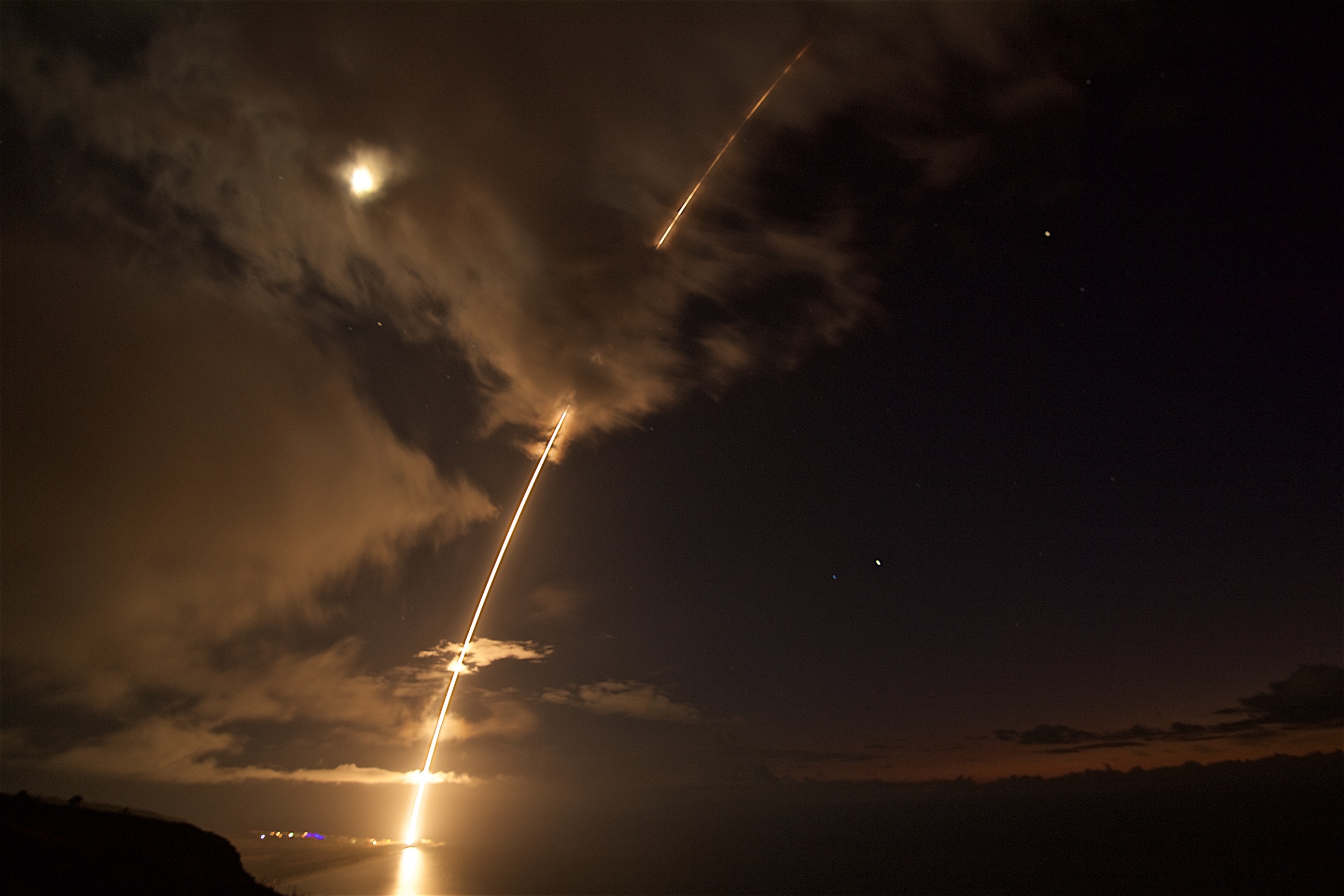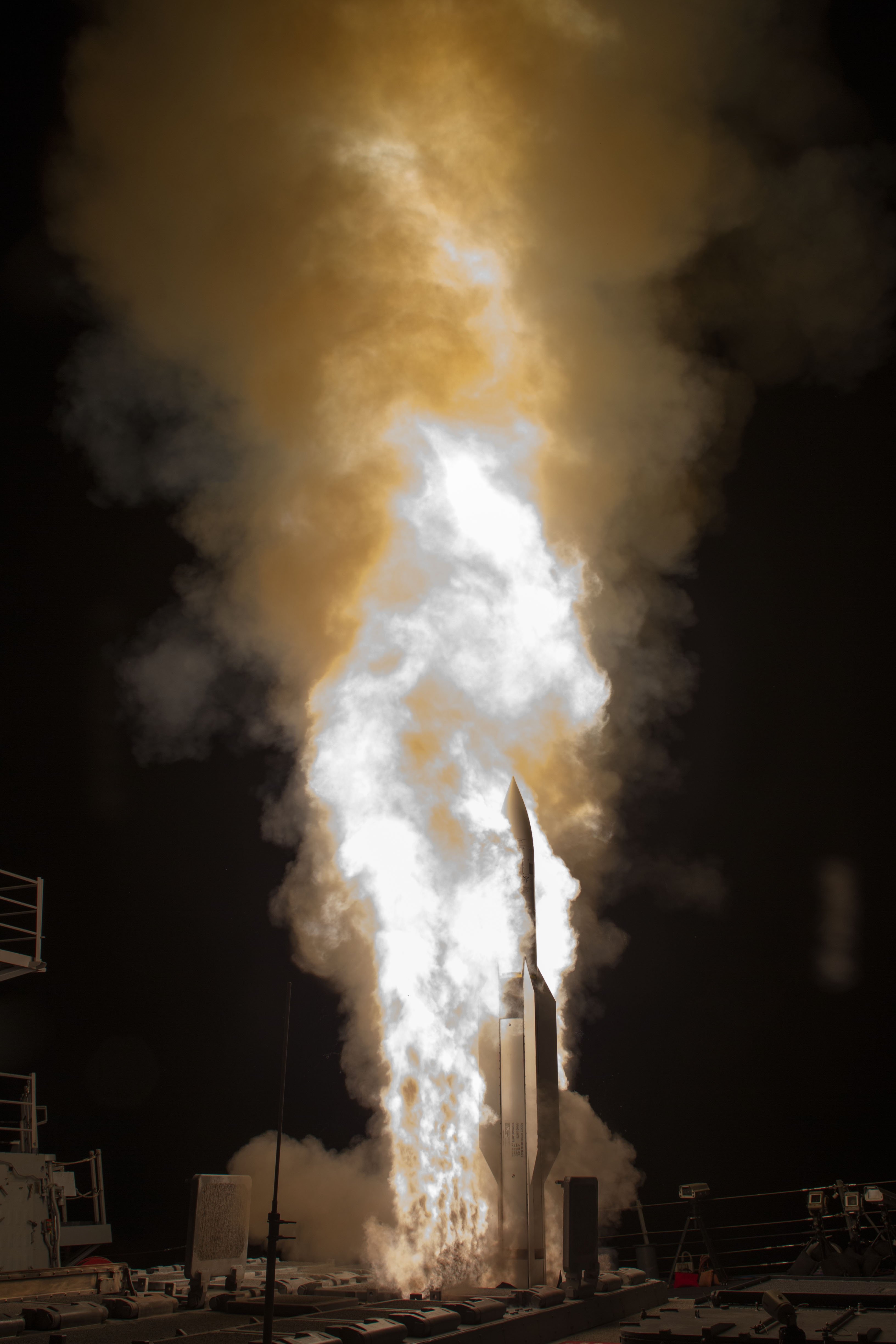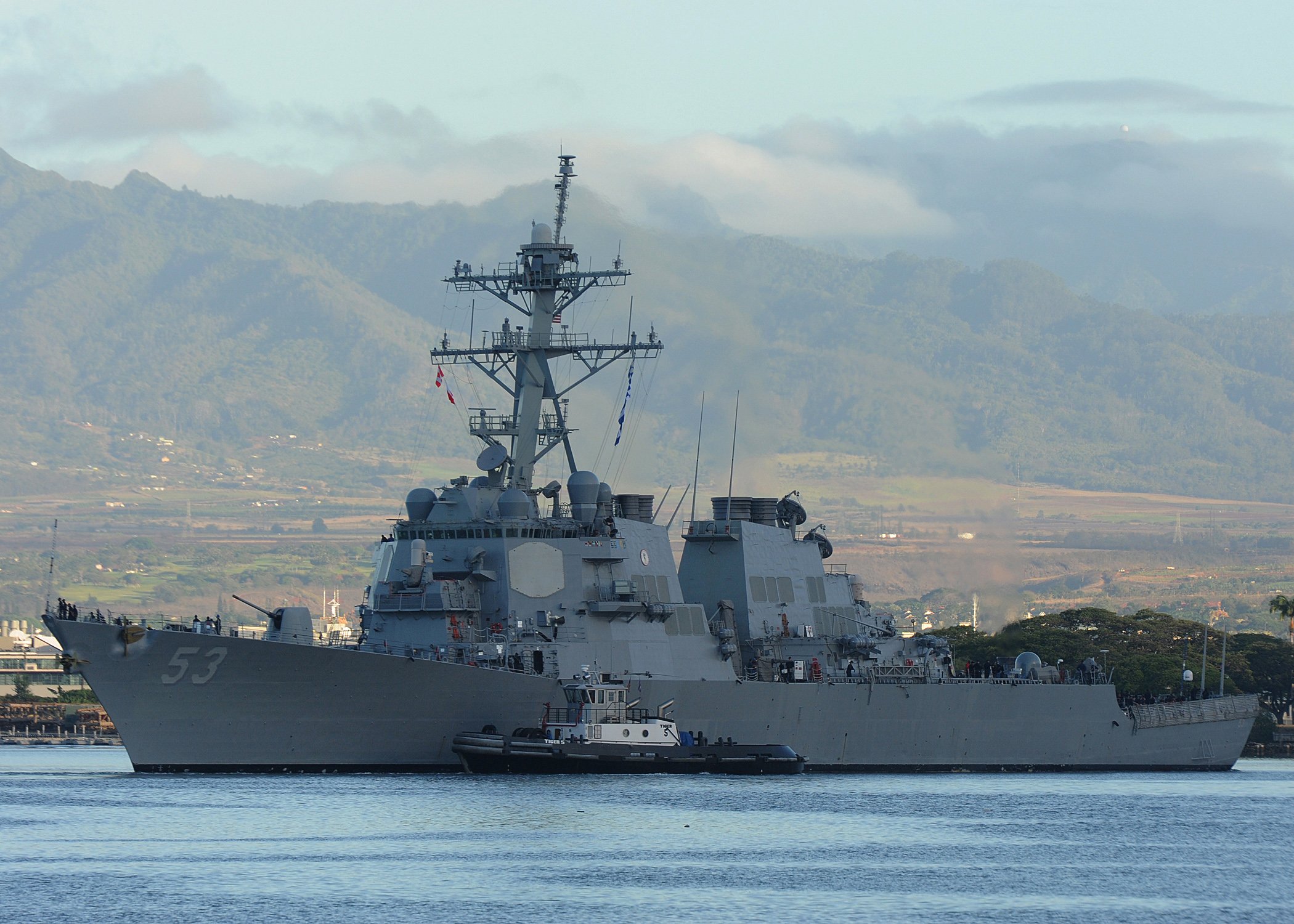
Two missiles launched from the guided-missile destroyer USS John Paul Jones (DDG-53) bullseyed a complex medium-range ballistic missile target in a successful test off Hawaii, the Missile Defense Agency announced on Wednesday.
The test put two Raytheon SM-6 Dual I missiles against the complex target that was launched off from the Pacific Missile Range Facility on Kauai, Hawaii.
Flight Test Standard Missile-27 Event 2 (FTM-27 E2) is the second successful test of SM-6 has had against a medium-range BMD target following a similar test in December. The MDA and Navy first tested the concept in 2015.
The terminal phase “is the last opportunity to make an intercept before the warhead reaches its target. Intercepting a warhead during this phase is difficult and the least desirable of the phases because there is little margin for error and the intercept will occur close to the intended target,” read a description from MDA.

Unlike the Raytheon Standard Missile 3s that intercept BMD targets during the mid-course of their trajectory, the terminal phase capability in the SM-6 is a secondary function of the weapon that is designed primarily for traditional air and cruise missile threats used in concert with the Lockheed Martin AN/SPY-1D(V) radar and the Baseline 9 version of the Aegis Combat System.
“The SM-6 missile uses an explosive warhead to defeat ballistic missile threats, differing from other missile defense interceptors, such as the Standard Missile-3, which use non-explosive hit-to-kill technology,” the MDA said in a statement.
The promise of the capability is that an SM-6 with that can perform BMD and traditional air warfare functions would free up space in a guided-missile destroyer missile cells.

“We are working closely with the fleet to develop this important new capability, and this was a key milestone in giving our Aegis BMD ships an enhanced capability to defeat ballistic missiles in their terminal phase,” said MDA Director Lt. Gen. Sam Greaves in a statement.
“We will continue developing ballistic missile defense technologies to stay ahead of the threat as it evolves.”





